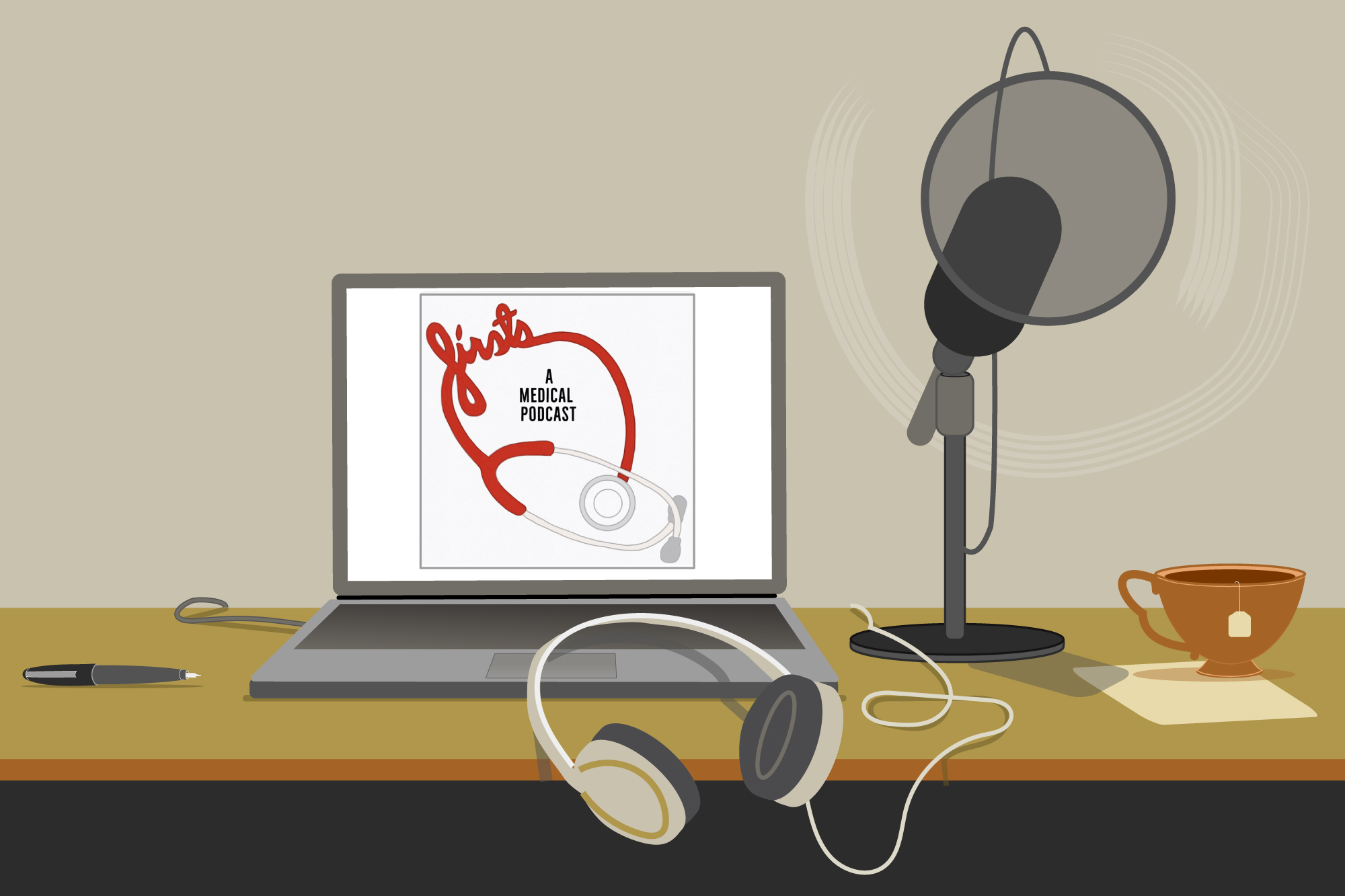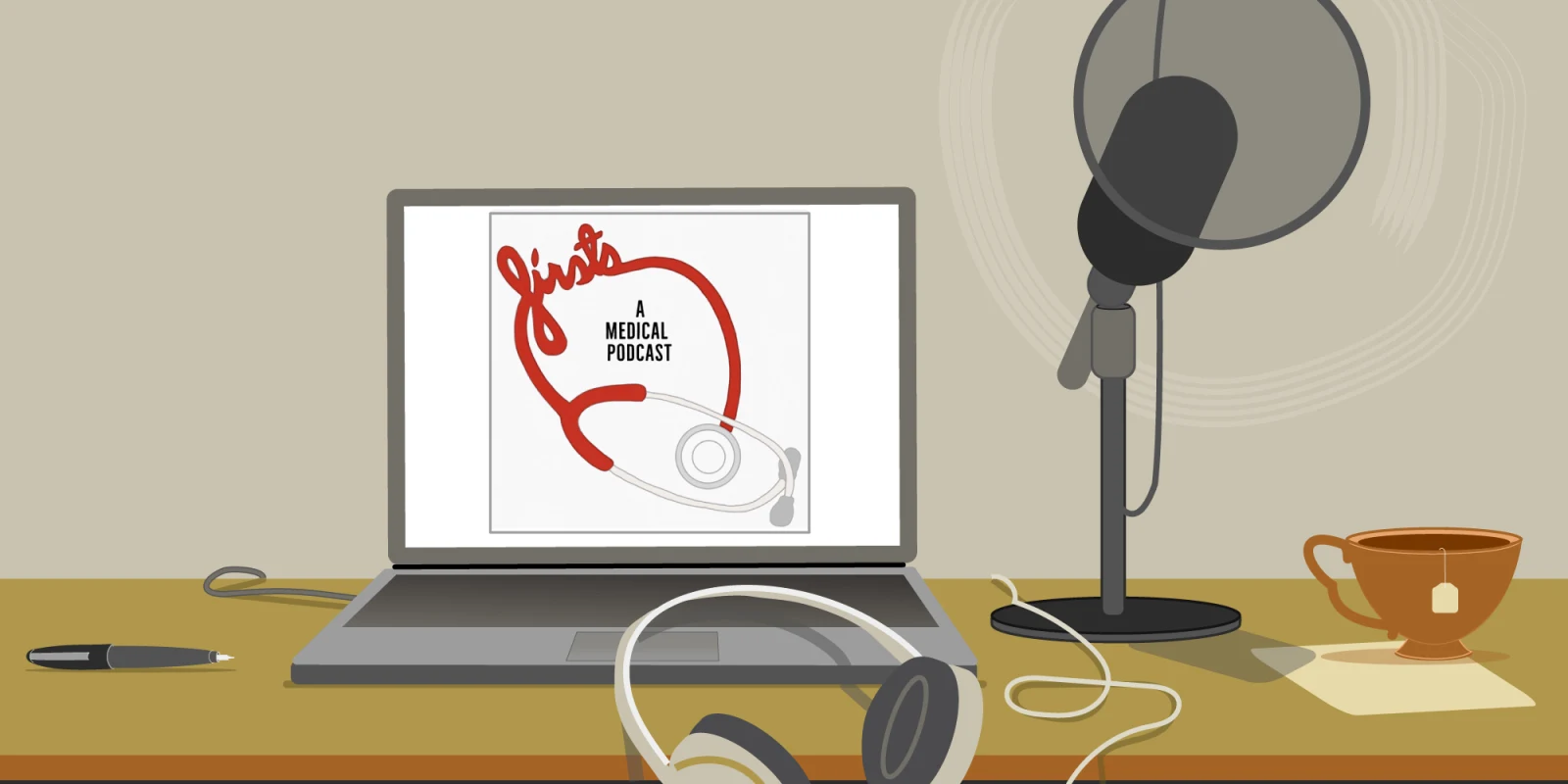
Do you remember the first time you stepped foot into anatomy lab? Held a human heart? Saw your cadaver’s face?
These kinds of experiences often make a lasting impression on medical students. I still remember these first-time moments, moments that are often raw and real with emotion.
In medical school, there are many first-time experiences. Delivering a baby for the first time. Sharing difficult news with a patient. Witnessing a code blue.
Even after medical school, we are also subjected to first-time experiences — in residency and afterwards as practicing physicians. The first time prescribing on your own. Teaching medical students. Running a code.
How do we navigate these social and emotional parts of medicine? There is a podcast that discusses this very question: “Firsts,” a podcast in which students and physicians share their stories about first-time medical experiences.
This past week, a medical student at my school launched the podcast. Full disclosure: that student is my brother, but I believe his podcast has something valuable to offer all listeners — whether medical students or attendings, pre-meds or the lay public.
The inaugural episode, “First Teachers,” on anatomy lab and dissecting a cadaver, was released recently. In this episode, two medical students share the highs and lows of their anatomy experience. In addition, Dr. Larry Rizzolo, a professor at Yale, shares lessons from anatomy that go beyond the lab.
I recently sat down with him for a chat about his podcast and on any insights he wanted to share with listeners.
Anna Delamerced: Congrats on launching a podcast! How did the idea first come about?
Tino Delamerced: Thank you for the opportunity to speak about it! It started with an Alpert Medical School (AMS) elective on podcasting, taught by Julie Roth (Neurostories) and Gita Pensa (Doctors and Litigation: The "L" Word). I've always written but never for the ear, and when I started listening to more podcasts, I was drawn to the nuances of voice you can hear that give life to people's stories. Being a first-year inundated by first-time experiences, I thought a podcast would be a nice way to process some of those experiences and hear what my classmates and professors had to say about them as well.
AD: Take us through your thought process and insights on carrying out the work of making a podcast. How do you choose topics and interviewees?
TD: It pretty much starts with whatever topic is on my mind. Anatomy, for example, was something I thought about a lot during the first year of med school. It turns into me looking up what people's research has been on the topic and what's being said in more public-facing journals or newspapers like the NYT. Then I think, who would be the best person to talk to? Oftentimes, I'm wrong about who the best interviewee will be, and almost every time, the stories people tell me completely change the arc I originally had in mind. Once I've done the research and finished the interviews, I've been trying to do what one of my mentors Teresa Schraeder has been telling me — "sift for gold." In other words, be selective in grabbing the best quotations, best voices, best stories. That, for me, is the hardest part, but I know medical people are strapped for time, so I try to make shorter episodes. After all that's done, I script it, record my voiceovers, and add music and sound effects.
AD: What’s your overall mission with the podcast?
TD: I've thought about this a lot, and I can't say I've settled on one major intention. I've always just wanted to be able to tell people what it's like to go to med school. Maybe that gives pre-meds a picture of what is to come; maybe that gives patients and the public at large a chance to be compassionate toward our struggles; or maybe it reminds med students and doctors that we are still human beings and we once were people who were doing all these things for the first time. Above all, I hope it does spur reflection because med school often doesn't give as much time and space as we need for that.
AD: What’s one thing you learned about yourself from doing the podcast?
TD: I think historically, I’m someone who can be afraid to ask questions, especially regarding social and emotional things. But whenever I broach those topics, whether I’m asking myself or others, I’ve never had a bad or unproductive conversation. So I don’t know what I was or am afraid of in initiating those conversations. I think it’s because to broach those topics, you can’t just ask other people personal questions and expect to get real answers. It becomes a more natural conversation when I share something about myself first. Then (for example, during an interview) it’s like, I’m being vulnerable, and you can be too if you want. So I think that’s a pretty decent takeaway – people are hesitant to talk about some of the social and emotional topics I go into in the podcast, but I think we come out of those conversations understanding more about ourselves and each other.
AD: What can listeners expect for the future?
TD: I have four more episodes that I’ll be releasing monthly (pretty much until my dedicated study period for Step 1 starts...), and I’ll tease a couple of them: the next episode is about a newly formed community at AMS centered around music. For the following one, I’m releasing an episode on food security among medical students (I’m very excited about releasing this one). It’s a topic that doesn’t get much attention because people don’t think of med students as a population at risk for food insecurity. Also, look out for an episode about failing in medical school. I hope that episode can help us think about how we can better support students going through that.
After launching the podcast, Tino began receiving emails and messages from his classmates and medical students from other class years – they shared their own experiences of anatomy lab, both the good and the bad. It seems like the podcast is already spurring conversation.
Before we parted ways, he said thank you to whomever may give it a listen. If you’d like to reach out to him for questions or share your own first-time experiences, he would love to hear from you.
“More than anything, it’s encouraged self-reflection,” he says, “and I hope there’s something for everyone to gain from listening to it.”
Anna Delamerced is a medical student at the Warren Alpert Medical School of Brown University. Born and raised in Cincinnati, Ohio, she enjoys exploring the crossroads of writing and medicine, and listening to patients tell their stories. Anna is a Doximity 2019-2020 Fellow.
Illustration by Jennifer Bogartz






